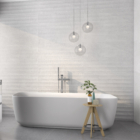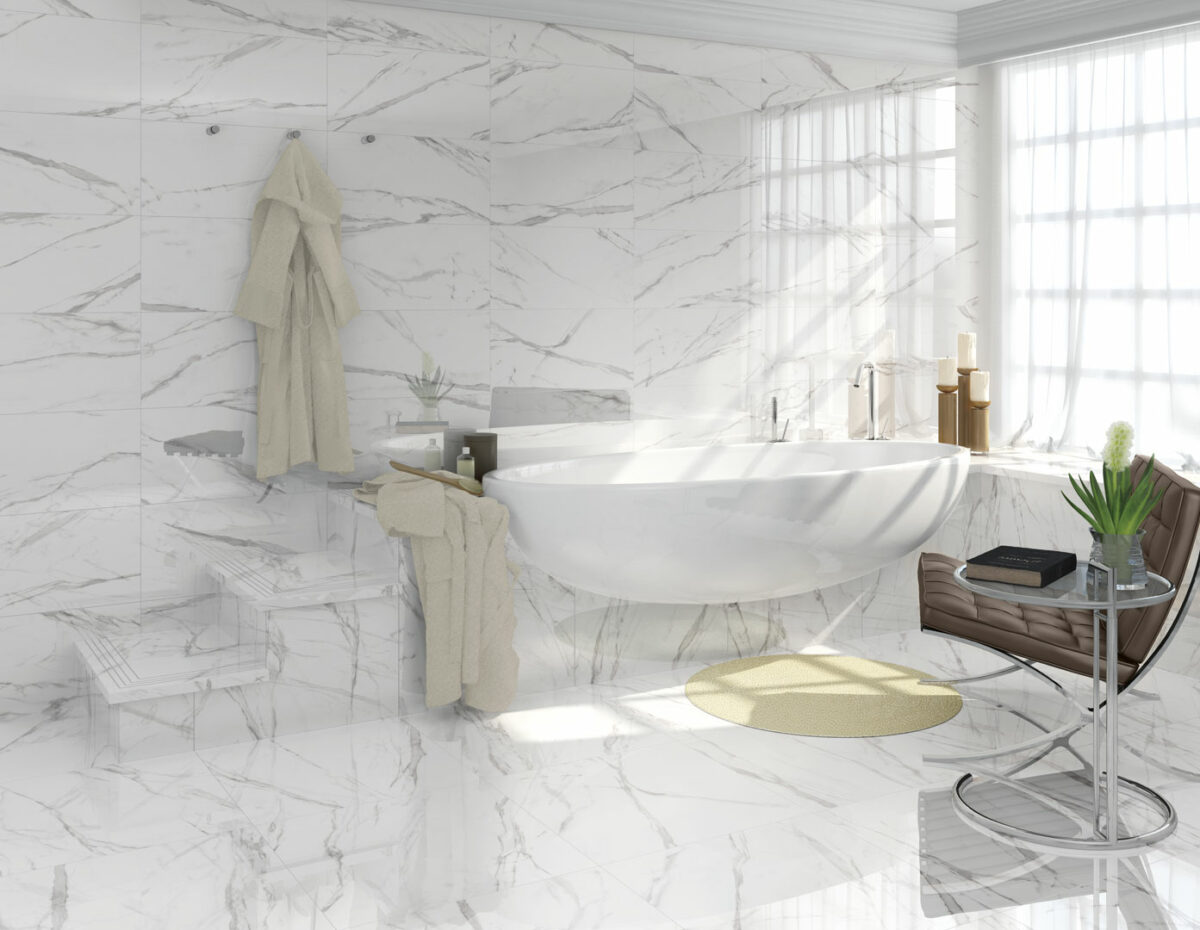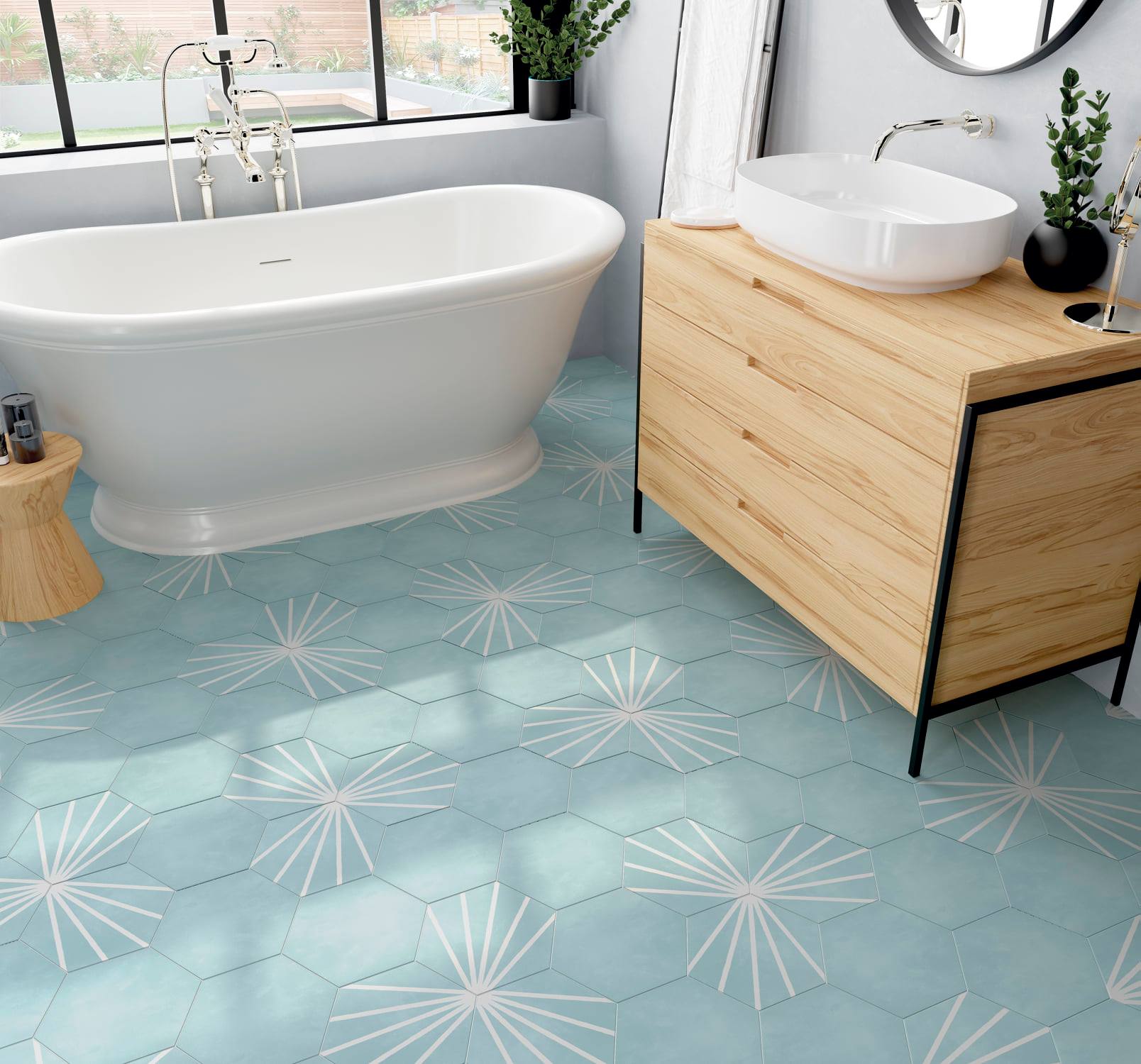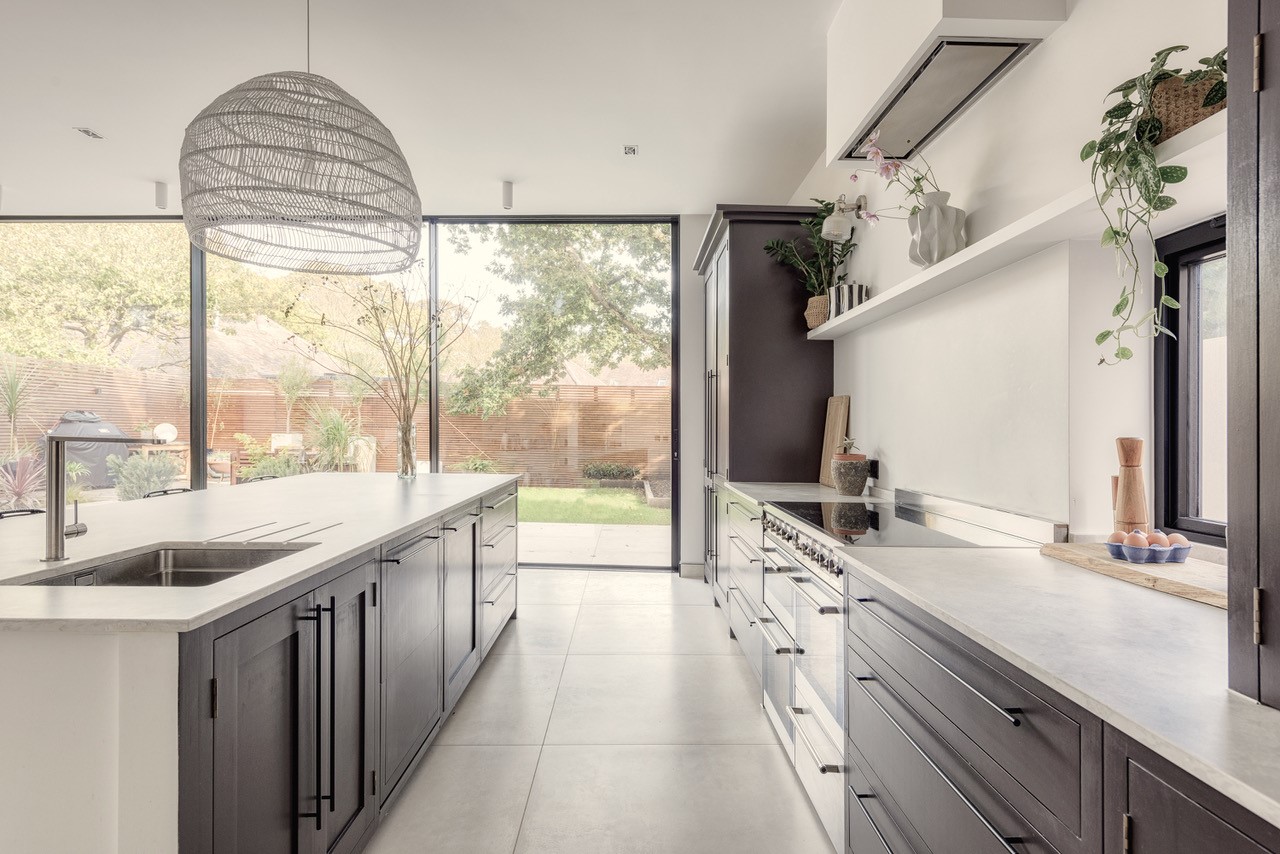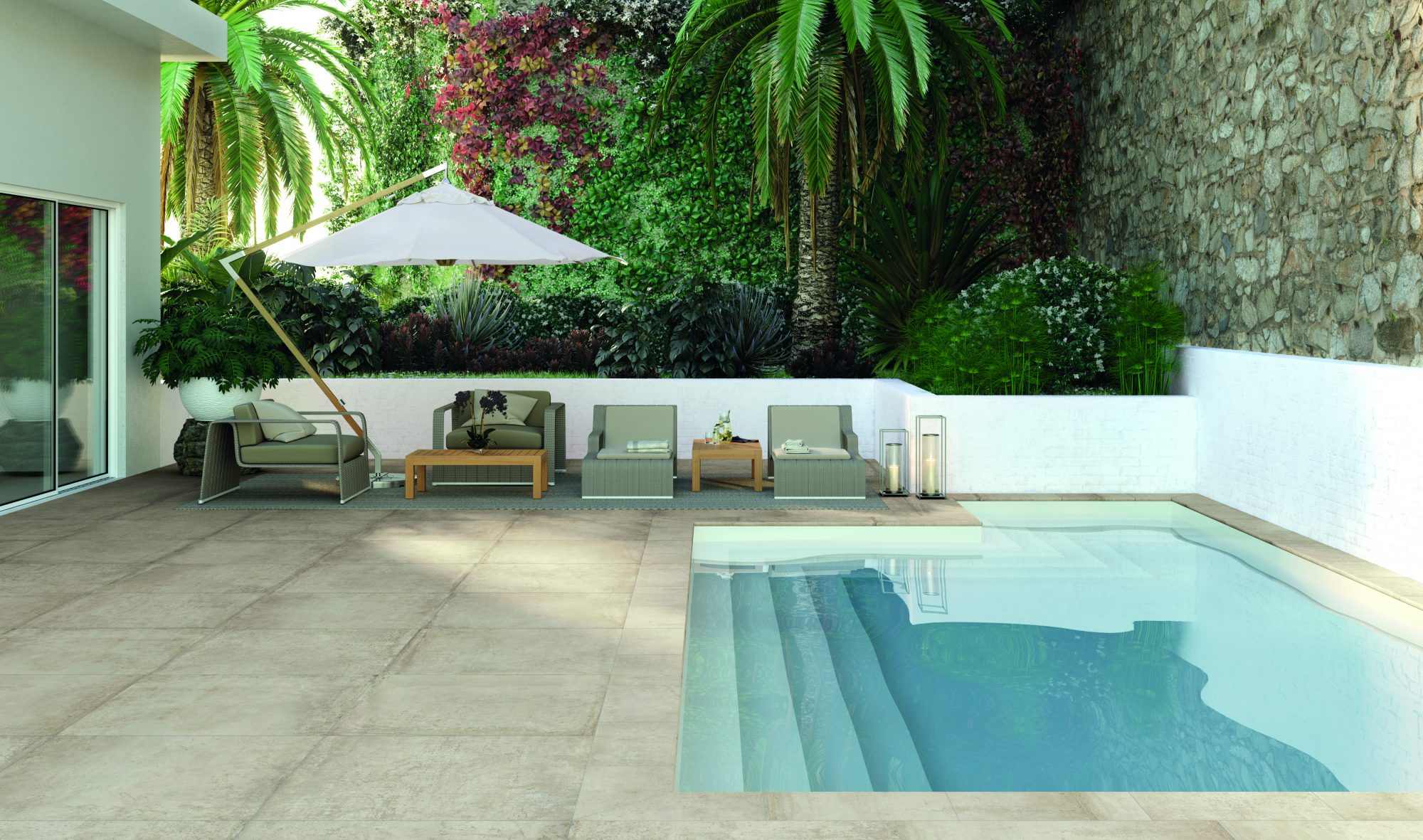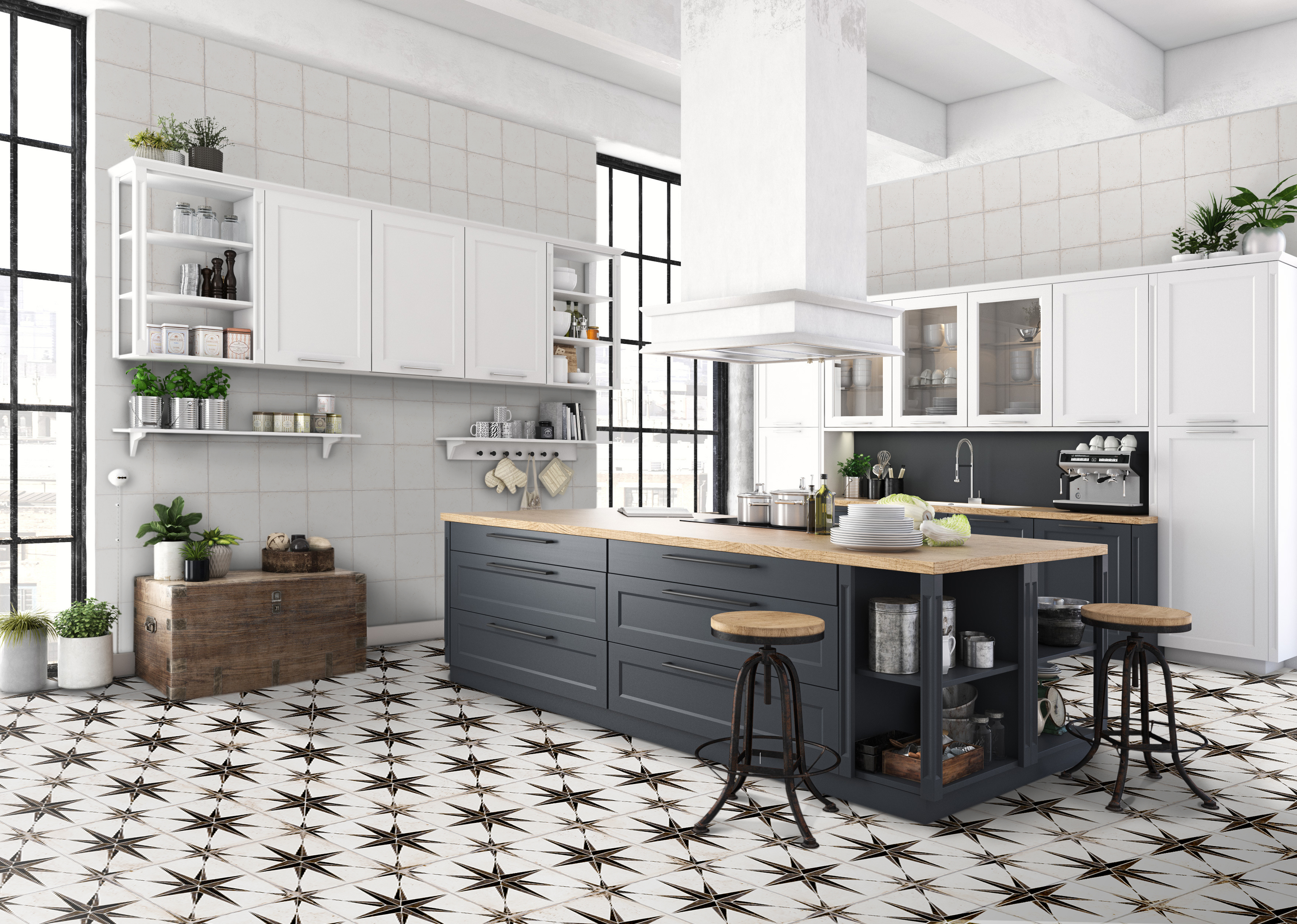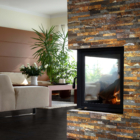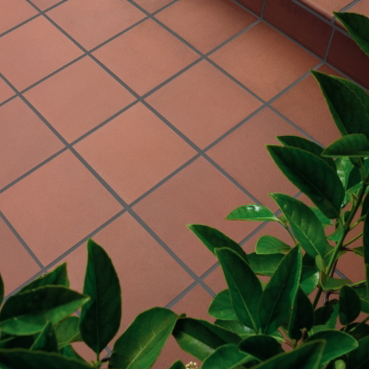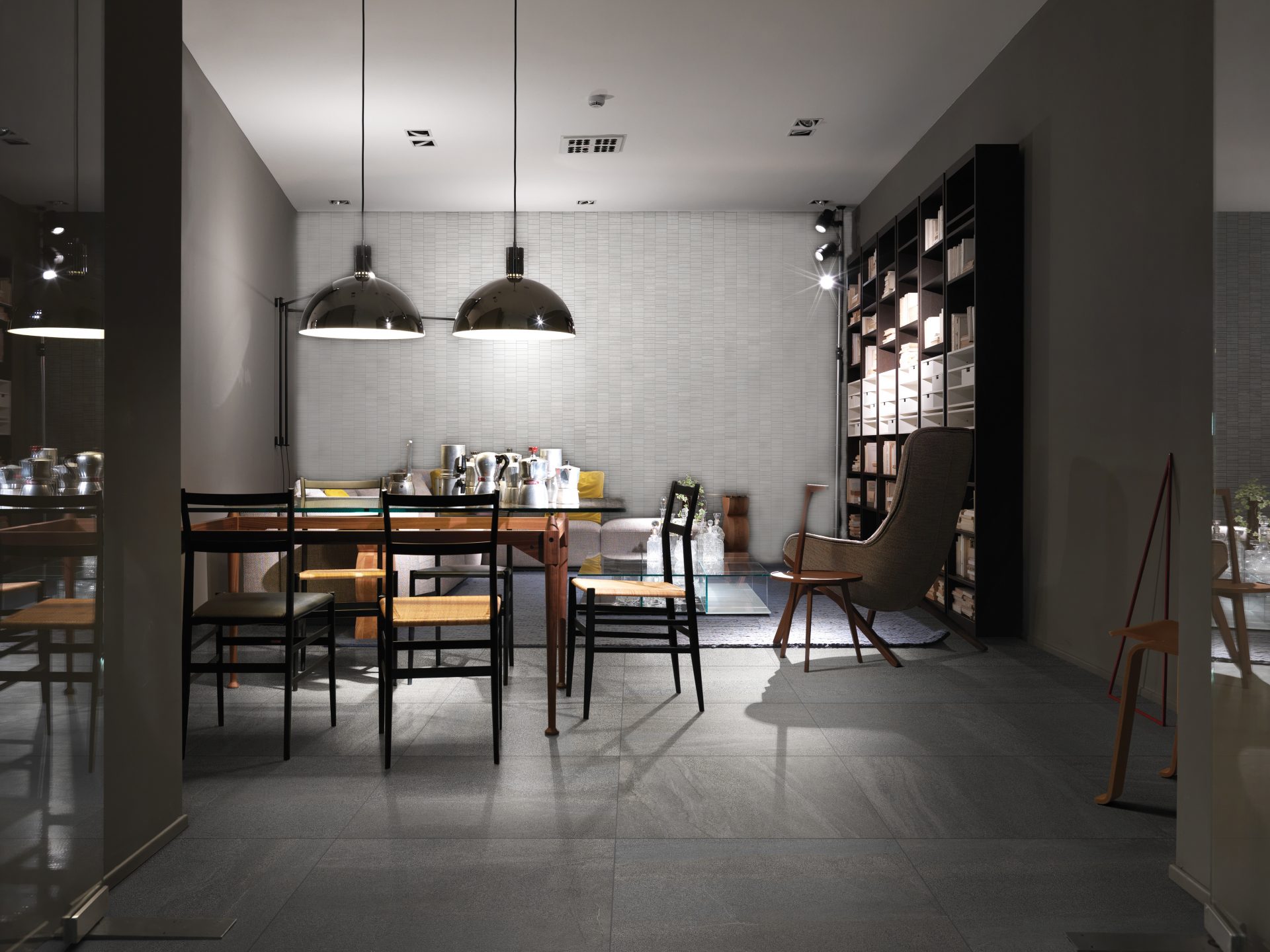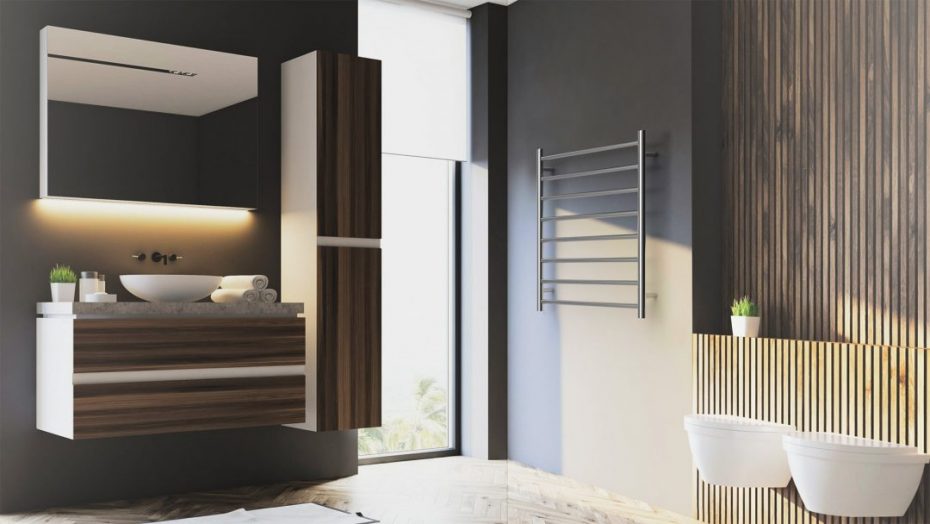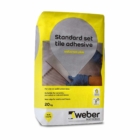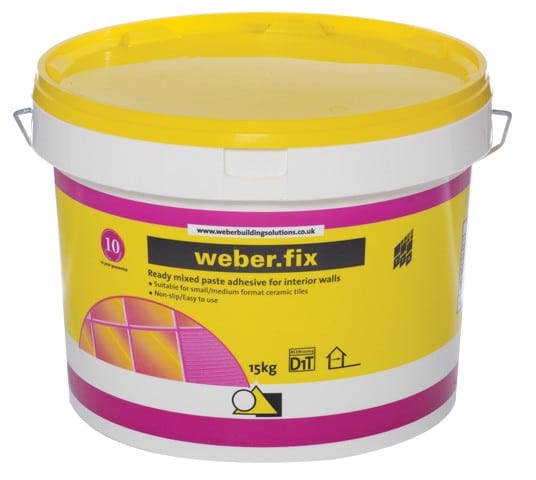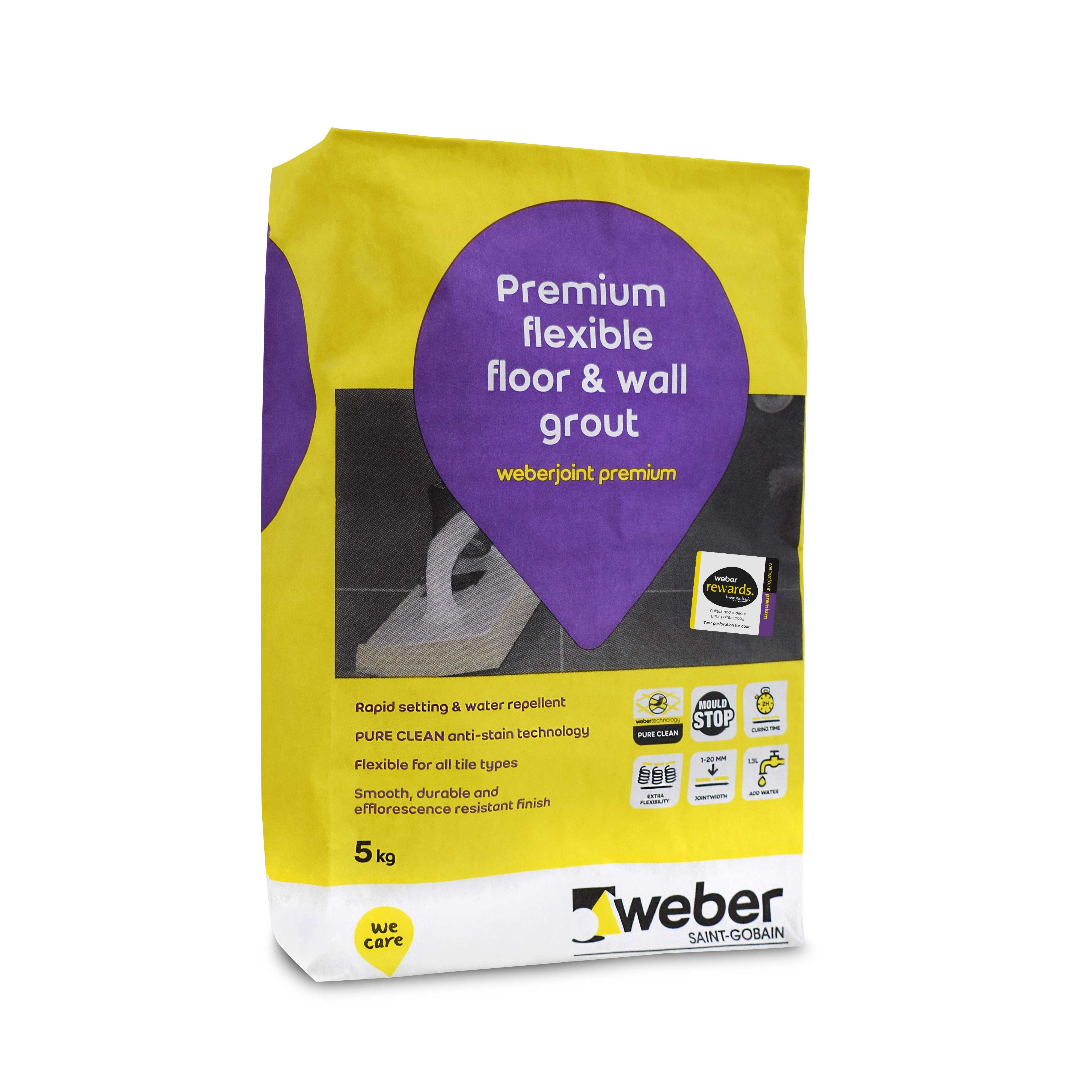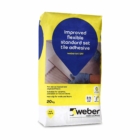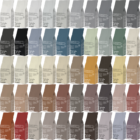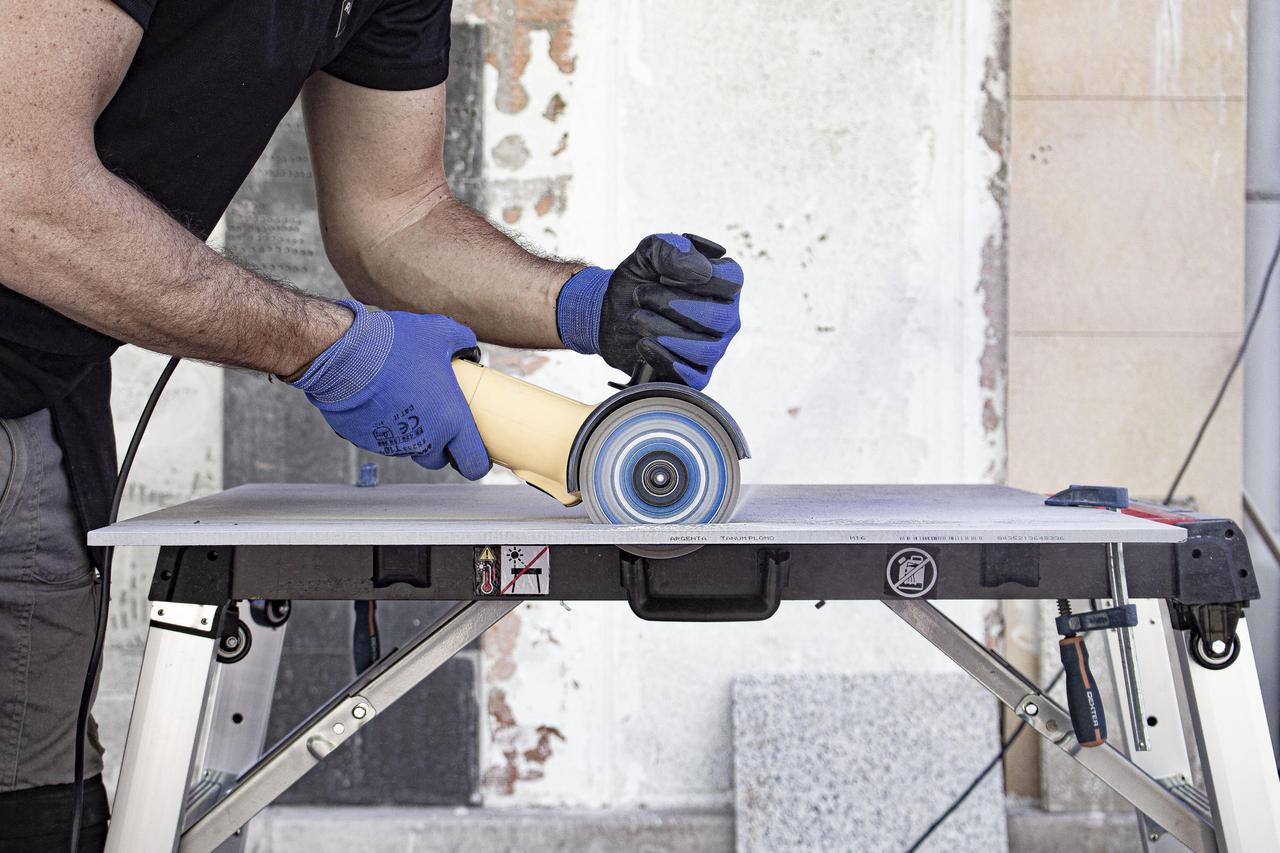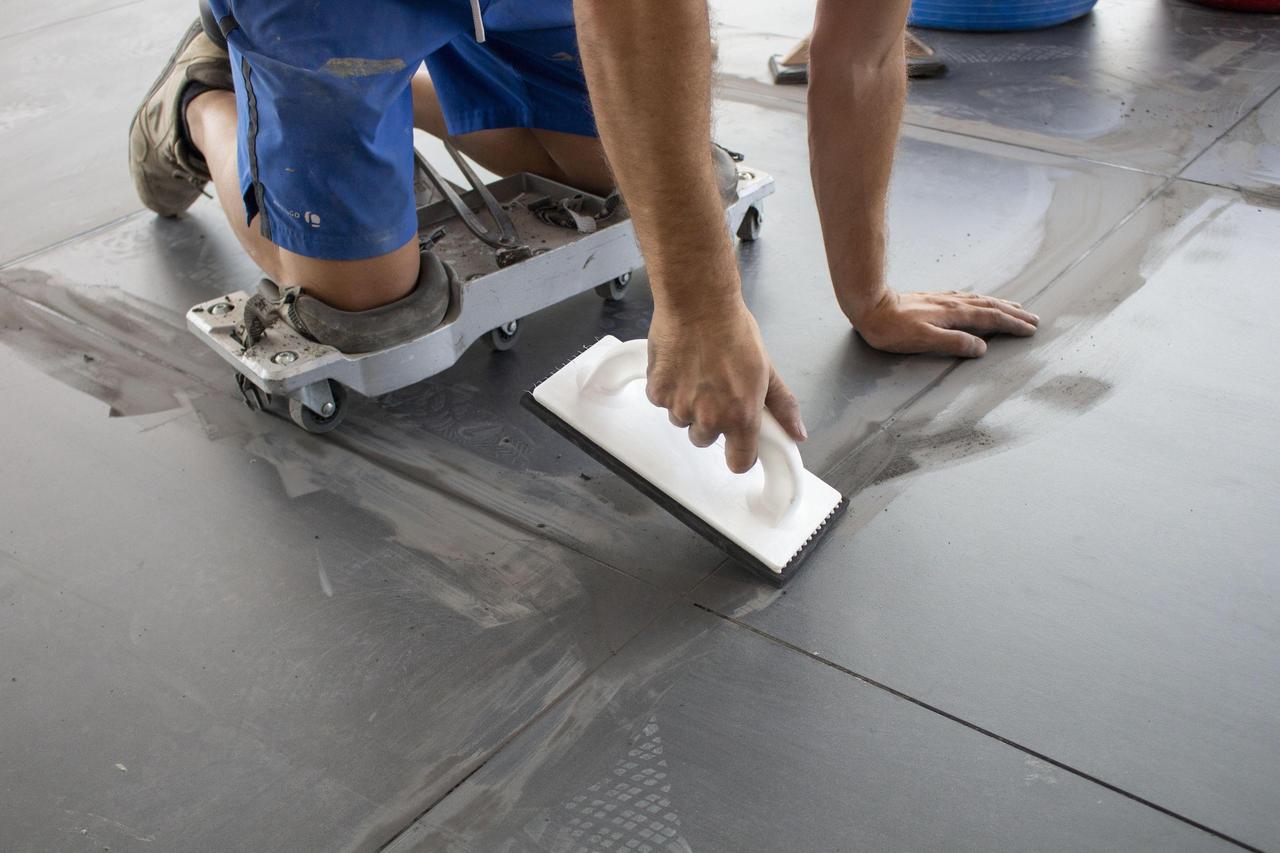Are Porcelain Tiles Waterproof?
There is some misunderstanding regarding the use of the word “waterproof.” For something to be waterproof, it must be completely impervious to the effects of water. That means it should be tightly sealed, and it should not allow any moisture to enter, regardless of the circumstances.
Thus, very few things are truly waterproof – your phone for example is not waterproof. Rather, it is water resistant. Water resistance is not a binary term like waterproof, but rather a sliding scale where something can be either “more” or “less” waterproof.
You may have guessed where this is going: porcelain tiles are not waterproof, they are water resistant. That means that if you submerge them in water long enough, then they will eventually allow that water to seep through.
Before you get too upset though, you should recognize that tiling – and porcelain tiling in particular – is actually highly water resistant. Moreso than most tiles and even most materials used in kitchens and bathrooms – why do you think it’s the option of choice?
So Just How Water Resistant is Porcelain?
More specifically, porcelain tiles are what is often referred to as “moisture proof.” As you might imagine, this means that they are impervious to moisture, which means that they aren’t likely to get easily damaged simply by being in bathrooms or even wet rooms.
Porcelain is actually the best choice for these kinds of applications, seeing as it is more water resistant even than ceramic tiles. That’s because ceramic tiles and porcelain tiles are made from slightly different types of clay and are heated at different temperatures. The result is that ceramic has a softer and more porous finish, that perhaps is better suited to kitchens.
Does moisture-proof mean that you don’t need to worry about mold and related issues? Unfortunately not! That’s because “moisture proof” is actually a rather vague term, and if droplets of water sit on a porcelain surface for long enough, they can still be absorbed. Moreover, the damp surfaces can provide a fertile breeding ground for mold spores, resulting in the formation of unhealthy and unsightly black mold on your surfaces.
Combating Mold in Your Bathroom
Mold is a more serious problem than most people realise. Far from being simply a minor annoyance, mold is actually very bad for both your health and your property and will only get worse if left. Many people think of mold as a simple fact of life for their bathrooms and presume that a room that gets so steamy would have to have a little mold as a result.
In fact though, mold is not something you should consider normal or even put up with in the bathroom or anywhere else. Here we will look at how you can reduce mold in your bathroom through lifestyle changes and alterations to your property/the room.
Understanding Mold
First though, it pays to understand mold. Where does it come from, and what are the factors that are likely to cause it?
Mold is caused by lots of tiny ‘spores’ that float in the air and that are attracted to moist damp areas. So if you were to have a leak in your roof that dripped water down the wall, you would most likely eventually see mold start to accumulate.
This is one of the reasons that mold is common in the bathroom – as you will create a lot of steam and not give it much chance to escape. Note as well though that this can be exacerbated if the walls/windows in that room are cold. Why? Because the cold surface will cause the droplets of water to ‘condense’ and turn to water. A small bathroom, lots of hot showers, and a small cold window are the perfect storm for a moldy room.
Preventing Mold on Porcelain Tiles
So how can you prevent this from damaging your porcelain tiles? A few options include:
- Creating less moisture by showering/bathing with less water and in cooler temperatures – this is also better for your bill and the environment
- Wiping everything down with a dry cloth after use. This will also prevent water marks and other damage.
- Using an extractor fan.
- Opening the window.
- Getting underfloor heating to prevent condensation.
There are also other things you can do to prevent moisture and damage in the bathroom. You should occasionally spray a mold killing product, and you should ensure your shower-screen is fully sealed. Finally, check regularly around the bottom of the bath for any moisture that might be escaping.
What About Grout?
So that’s the waterproof nature of porcelain fully explored… but wait! There is still one more question: what about the grout? Grout is used in between tiles and even though modern bathroom design tends to place tiles very close together, this still isn’t a watertight seal.
No matter how watertight your tiles themselves are then, the grout is still going to present a potential weakpoint that could lead to damage in your bathroom. So what is the answer?
Fortunately, an answer does exist: grout sealer. This is a product that should be used alongside epoxy grout in particular, and should be applied carefully only when that grout is fully dry. Apply it using a toothbrush, or try rolling or spraying it on.
This will provide a protective coating over the grout, which means it won’t come into direct contact with the moisture. That in turn means that it will stay dry and won’t be prone to mold or degradation in the same way.
Do keep in mind however that no seal is completely watertight either. Not only is it still possible for small amounts of moisture to get through, but it’s also highly likely that very small areas will get missed.
So to answer the question in the title: are porcelain tiles waterproof? The answer is “technically no,” but despite this, they are still water resistant enough to be a great choice for kitchens and bathrooms. You just need to make sure that you are careful and you look after them well in order to get the very most from them.
Article by Mike Lovatt
Here at Atlas Ceramics we import and distribute high quality products to support the tiling industry. These products include Polished tiles, Matt tiles or Satin tiles for the wall and floor, ceramic and porcelain tiles, natural stone and mosaics, from Italy, Portugal, and Spain.


